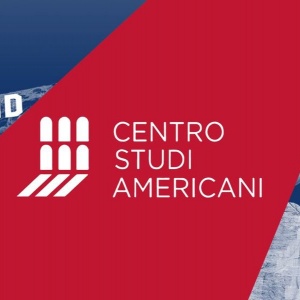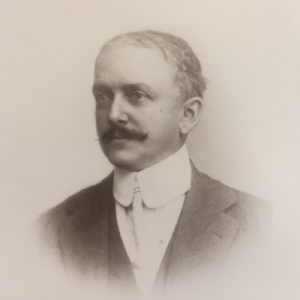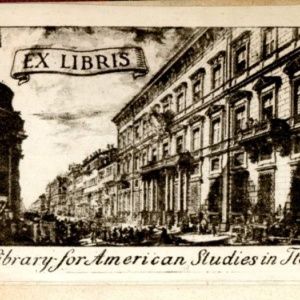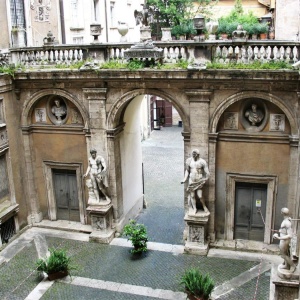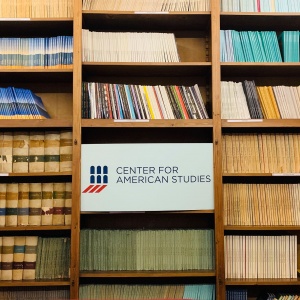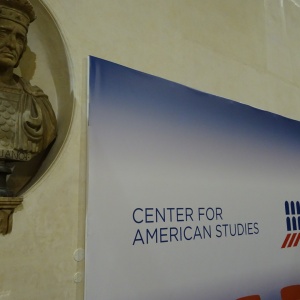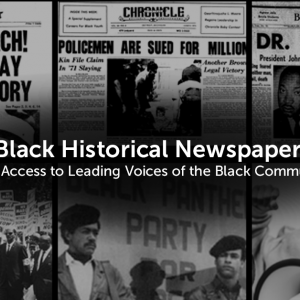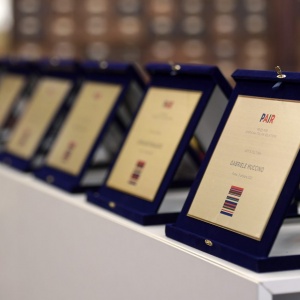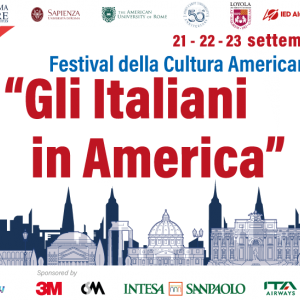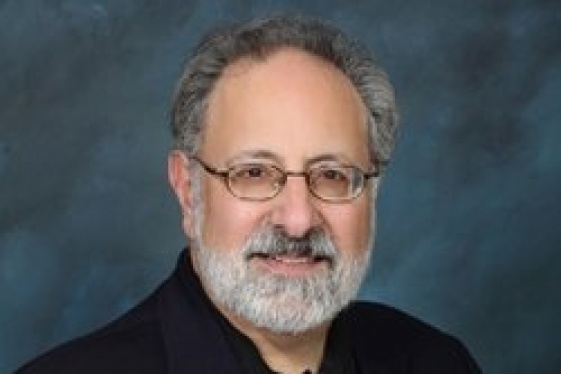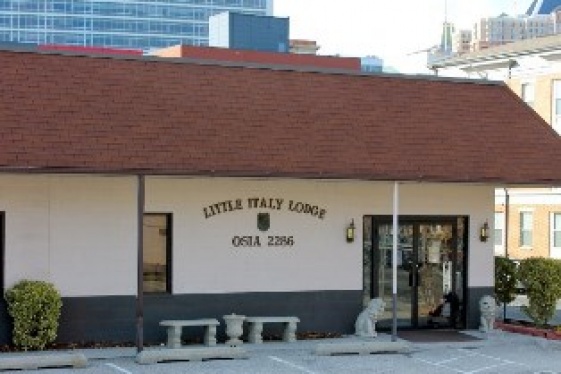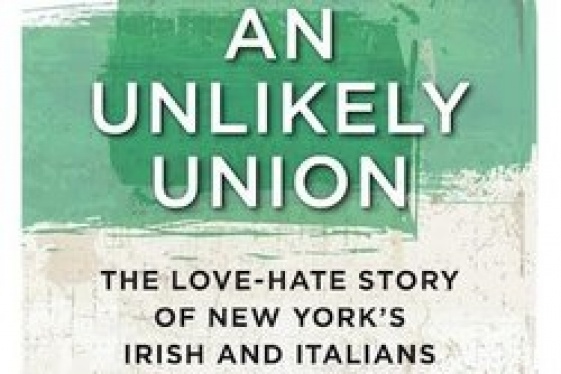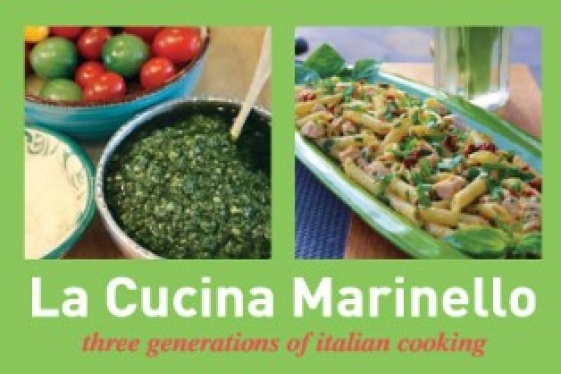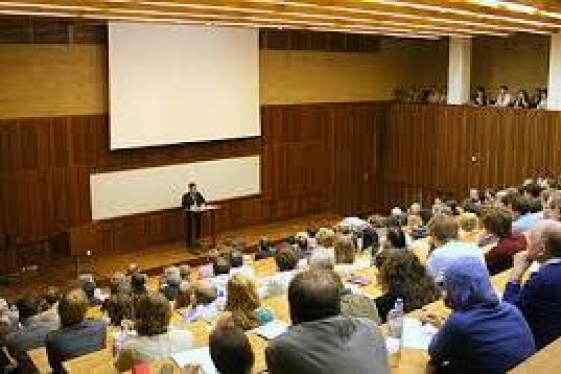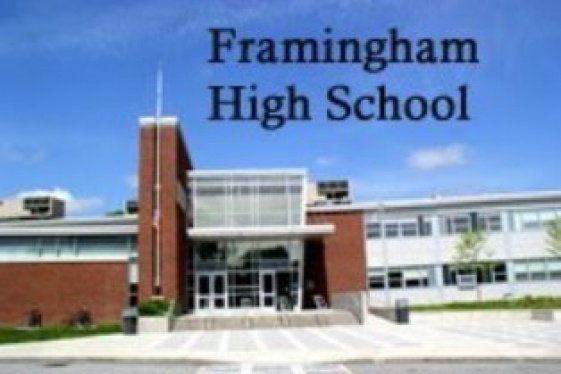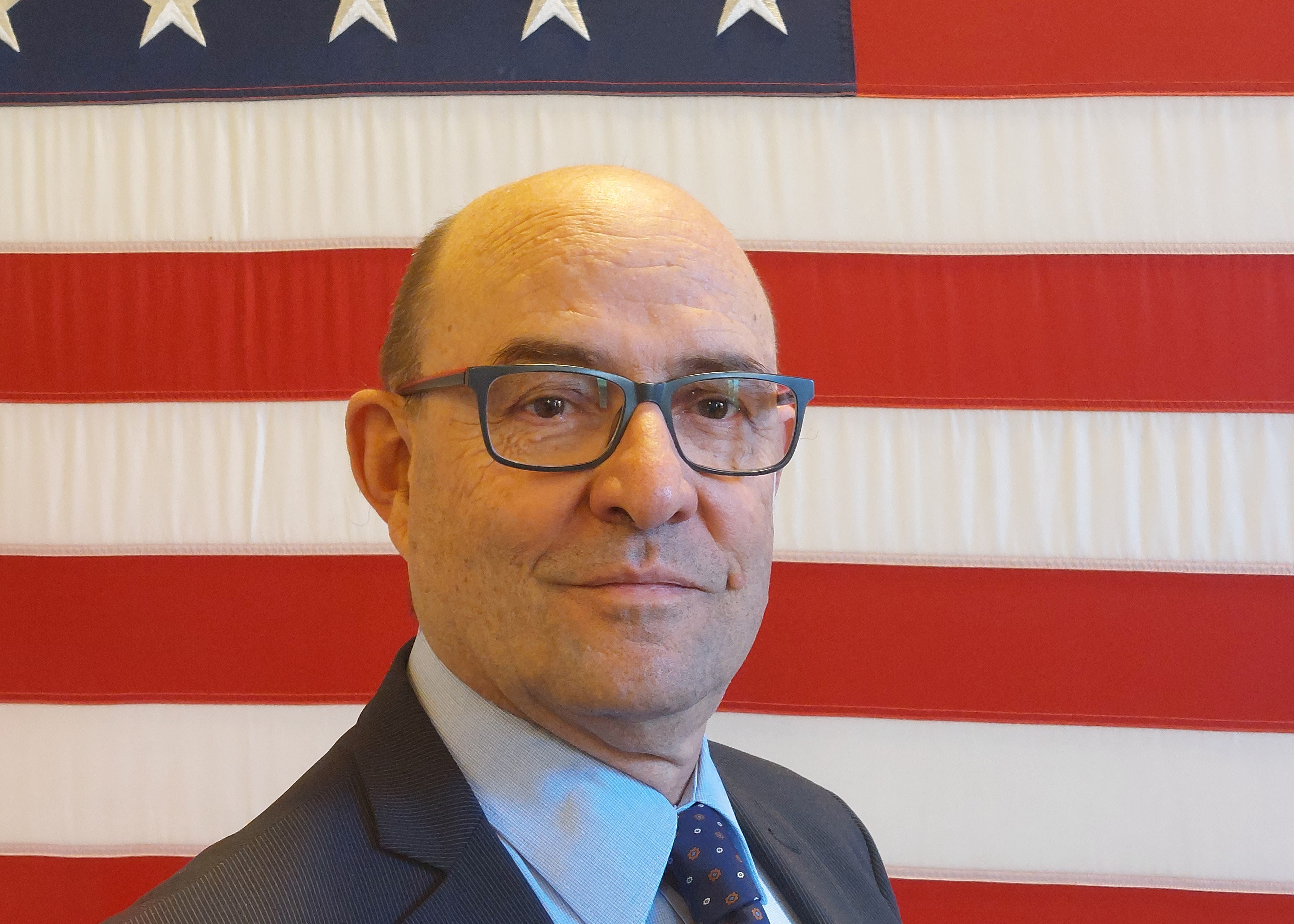
Roberto Sgalla (Director of Centro Studi Americani)
Siamo l'Italia che ama gli Stati Uniti: benvenuti al Centro Studi Americani

It is with much pride and great joy that we tell that a collaboration has been born that has led and will lead We the Italians to team up with a great institution, the Centro Studi Americani (Center for American Studies), the home of all Italians who love America, here in Rome.
We take advantage of the interview that Director Roberto Sgalla granted us, to announce the "Gli Italiani in America" festival, which will take place from September 21 to 23. We are already working to contribute to other initiatives together with this magnificent place in which anyone who loves America feels excited. We welcome on We the Italians the Director of the Centro Studi Americani Roberto Sgalla.
You have been the Director of the Centro Studi Americani since January last year. Can you help our readers to know a little better about the history of this wonderful institution?
The Centro Studi Americani is one of the oldest and most prestigious institutes of US studies in Europe.
Speaking of the history of our Institute, it is impossible not to take a step back in time and start from our historic headquarters: the Palazzo Antici-Mattei, a baroque building located in the center of Rome. The Palace, designed by the famous architect Carlo Maderno, boasts a rich collection of ancient sculptures dating back to Roman times, and frescoed ceilings by the main painters active in Rome between the end of the 1500s and the first half of the 1600s. Here, inside the Centro Studi Americani, we have paintings by Giovanni Lanfranco and Pietro da Cortona, and seventeenth-century marbles on the outside.
The Center has a history of more than a century: the core of our book collection dates back to its foundation in 1918, thanks to Harry Nelson Gay, a scholar and one of the most active protagonists of the Anglo-American community in Rome. In the same period, the Associazione italo-americana was founded.
After Nelson Gay’s death, in 1932 the new Centro Studi Americani was born and received as a donation the library of the Antici Mattei building. In 1949, a Council for American Studies was formed, consisting of the AIA, the University of Rome, the US Embassy and the American Commission for Cultural Exchanges with Italy. The Council was legally constituted as an Association with the name of American Studies Center in 1959. In 1963 the Centro Studi Americani was recognized as legal entity.
Under your leadership, the activities of the CDA have grown a lot, online during the pandemic and now again in person. We ask you to briefly describe them.
Since its origins, the Center has pursued and continues to pursue the goal of promoting transatlantic relations and dialogue between American, European and Italian culture. To this end, initiatives are organized aimed at both an expert audience and a more general audience.
There are mainly two lines of activity.
One concerns the initiatives of the library: there are many partnerships with Italian, European and American institutions and the same number of qualified Italian, European and American experts who meet through conferences on American history, seminars on American literature, conferences and presentations of texts, books and research on the history and literature of America. In addition, this year we have created a column with interviews to scholars called “Incontri con la letteratura americana” (Meetings with American literature) and a book club to share the reading of the classics of American literature. The activity of the library, which is then completed with the attendance of young people, students and researchers.
The other pillar on which the activities of the Centro Studi Americani are focused is a think tank. We have built what we metaphorically call "bridges", precisely to give the idea of bridges that unite Italy and the USA: a series of programs that develop the goals and the strategies of our institution, together with the companies that support us and our members.
For us, the comparison, the help, the contribution of American culture and stakeholders is fundamental. Through our bridges we try to deepen all the fields of interest for society, trying to offer an analysis that is always current and from a transatlantic perspective. Our areas of interest are geopolitics and international relations, energy, technological innovation, cybersecurity, medicine and new steps in scientific research, sustainability and the environment and, of course, history and literature.
One of your excellences is certainly the library: how many volumes do you host, and what type?
An integral part of our Institute is precisely the Library. Compared to the initial core of about 10 thousand titles, today the Library boasts a collection of ancient and modern texts on American history, literature and culture that exceeds 50,000 volumes, to which is added a wide range of electronic resources. We also have a collection of old books which includes about 450 rare and valuable editions published between the 16th and 19th centuries. Our catalog is part of the world's leading consortium of libraries (OCLC WorldCat) and is accessible online. There is also an international loan and document delivery service that offers the possibility of requesting the sending of material from the most important US and international libraries.
This year our library has expanded the offerings of our virtual newspaper with the subscription of the Black Historical Newspapers of ProQuest. The Centro Studi Americani is the first institution in Italy to have signed up for this subscription. This collection of essential archives features decades of content from some of America's leading African American newspapers, such as the Los Angeles Sentinel, the New York Amsterdam News and the Philadelphia Tribune. It is an essential source for anyone interested in researching milestones in American history, such as the civil rights movement or the election of Barack Obama.
In fact, ours is a very active library, that still receives and catalogs. An example of it is the latest donation from a deceased American scholar who gave us over three thousand books; or the numerous Italian scholars who donate us part of their collections. This means that the Centro Studi Americani library has been able to enter into agreements with dozens of Italian university institutes who have courses in American language and literature, but also in geopolitics.
Of course, you can enroll in the Study Center also from the United States?
You can subscribe from all parts of the world, join our community and benefit from our services.
What is the PAIR Award - Prize for American-Italian Relations?
The PAIR Award is a recognition that, with an annual ceremony, is awarded to prominent Italian or American personalities who have distinguished themselves for promoting and pursuing the civil and moral progress of mankind, in harmony and coherence with cultural relations Italy / United States, for each of the following sectors: 1) Arts and culture; 2) Human, social, literary, and economic sciences; 3) Technical and technological sciences; 4) Justice and security.
Just to mention some of the names of the winners of the past editions Louis J. Freeh, Giorgio Napolitano, Jonathan Bober, Ennio Morricone, Nicola Piovani, Paolo Nespoli, Anita McBride, Giuseppe Tornatore, Ilaria Capua, Renzo Arbore...
The award, which is usually held towards the end of September, reaches its sixth edition this year, but from the very beginning it has been characterized as a very important event.
Today, more than ever, relations between Italy and the United States are fundamental. From the important and very active observatory of the Centro Studi Americani, what can we do to further improve this relationship of alliance and brotherhood?
On the occasion of the celebrations for July 4th, former Chargé D'Affaires Thomas Smitham and the Honorable Speaker Nancy Pelosi have repeatedly highlighted that the relationship between Italy and the United States has never been so strong. After 160 years of diplomatic relations, friendship and collaboration between Italy and the USA, now more than ever, also in the light of recent events in Ukraine, we look more concretely at a common horizon: the defense of democracy and freedom, which are the values of the West.
The importance of transatlantic relations and our bilateral relations is reflected in the global challenges and shared dossiers: from the pandemic to climate change, from defense and security systems to social issues, from conflicts to threats in the Mediterranean region and in the rest of the world.
The foundations on which our Western societies and their respective principles rest are consolidated and guide the joint action of our countries, so it is more necessary than ever to always guarantee the founding values of Atlantism, educating the new generations in the culture of mutual respect, democracy and human rights.
In September you will organize an important event that will concern the Italian Americans. What is it, and what can We the Italians do to help you?
The Center inaugurates the American Culture Festival this year, which will take place at our headquarters and in those of associated Italian and American universities from September 21 to 23. The Festival is a space dedicated to US history, literature, cinema, art, music, politics and society, where experts from the USA, Italy and Europe meet in front of a vast audience, at a time of high level but accessible sharing of information.
This year the title will be “Gli Italiani in America” (Italians in America). We understand the Italians not only as personalities who have found in America a place where they can assert themselves and become prominent personalities, but also with expressions of cultural character, from cuisine, to music, to the arts that have mutually permeated cultures in America. giving life to important sectors of music. For example, jazz has had a big contribution from the Italian band tradition, but I am also thinking of opera music, which is one of the most appreciated and most followed genres in opera houses. Or think about what medicine has been: great Italian doctors in America have been able to continue and foster research and find solutions for the collective good. So the festival stands precisely as another bridge to strengthen friendly relations: we can have the role of making different realities known.
In this regard, the Centro Studi Americani since last year has conceived, in partnership with the Lazio regional school office, a project that has been extremely successful, involving over 500 students from the Lazio Region, entitled “Alla scoperta dell’America” (Discovering America). Young people often have a somewhat stereotyped knowledge of America, for better or for worse; we have offered, through scholars, university professors and institutes with which we collaborate, 15 very "friendly" meetings to make America known on a historical, institutional, cultural and literary level.
We are relaunching this project for the second year. It's important for us to know that there is a need for in-depth knowledge of American history and culture! We are going to fill a gap, and this I think can be a small contribution to growing mutual knowledge, esteem and solidarity between the two countries.
We the Italians could collaborate on this project by becoming part of the network of all the associations and universities at our side, providing us with insights, perspectives and tools to deepen cultural issues shared by the two countries, even proposing personalities of interest that could enrich the debate.
It is a wonderful and very necessary project. Does it only involve the Lazio Region?
Yes, our project cannot cross regional boundaries, we would be forced to have facilities in Milan, in Palermo. We need to consolidate, because it was the first year and we did not expect such success. The school office noted that we were the first ever to propose a training, educational and cognitive project within the school-work alternation dedicated to American culture.
It was a success; we are repeating it this year. We introduced a few more elements in terms of the literature and ordering of the United States.
You may be interested
-
'Phantom Limb': A Conversation With Dennis...
Dennis Palumbo is a thriller writer and psychotherapist in private practice. He's the auth...
-
2015 scholarship competition
The La Famiglia Scholarship committee is pleased to announce the financial aid competition...
-
An Unlikely Union: The love-hate story of Ne...
Award-winning author and Brooklynite Paul Moses is back with a historic yet dazzling sto...
-
Emanuele: cervello d'Italia al Mit di Boston
Si chiama Emanuele Ceccarelli lo studente del liceo Galvani di Bologna unico italiano amme...
-
Former Montclair resident turns recipes into...
Former Montclair resident Linda Carman watched her father's dream roll off the presses thi...
-
Italian Americans media and beyond: between...
The Department of Italian invites you to a lecture by Fulvio S. Orsitto who is an Associat...
-
Italian world language teacher 2015-2016
FRAMINGHAM PUBLIC SCHOOLS - JOB DESCRIPTION TITLE: World Language Teacher - Italian...





